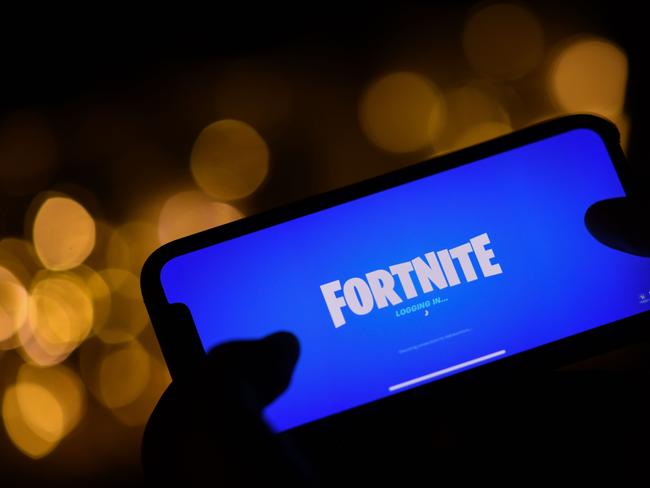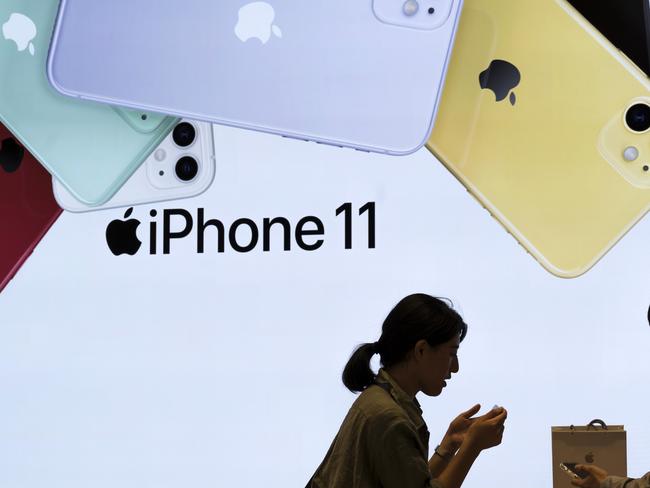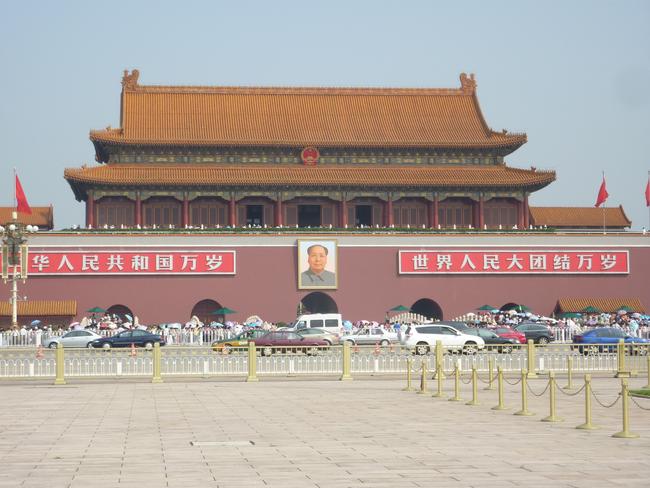ACCC confronts tech giants on app store fees
The ACCC will delve into the controversy of Apple and Google app store fees when it looks at the role of app marketplaces.

Hello and welcome to The Download, The Australian’s technology blog for the latest tech news.
Chris Griffith 11.15am: ACCC set for more confrontation with tech giants
The Australian Competition and Consumer Commission will join the controversy over the 30pc commission the tech giants pull from apps developers so that their apps appear in the Apple and Google app stores.
The ACCC today announced that it will examine the experiences of Australian consumers, developers, suppliers and others in a new report scrutinising mobile app stores.

The ACCC has confirmed to The Australian that the inquiry would definitely cover app and in app purchases in the app stores as detailed in its issues paper.
The ACCC in a statement today says the issues being examined include the use and sharing of data by apps, the extent of competition between Google and Apple’s app stores, and whether more pricing transparency is needed in the Australia’s mobile apps market.
The ACCC has released an issues paper seeking views and feedback from app developers and suppliers.
“Apps have become essential tools for daily living for many Australian consumers, a trend that is likely to have increased during the COVID-19 pandemic,” says ACCC Deputy Chair Delia Rickard. “Apps are, in turn, increasingly important for businesses as they promote, grow and run their enterprises.”
“We will also focus on the extent of competition between the major online app stores, and how they compete for app sales with other app providers.”
Watch for more fireworks as it tackles Apple and Google on the app store fees front.
Chris Griffith 10.30am: Australian phone sales down
Australian smartphone sales have fallen and a further decline is predicted due to economic uncertainty.
In July The Australian reported research by Kantar that found a 27 per cent drop in Australian smartphone sales for April to June year-on-year. This included the more than halving of sales of phones by China’s Huawei following the ban placed by the US on companies providing components and software to Huawei.
However, another analysis by local emerging technology analyst firm Telsyte presents a rosier picture. Huawei’s Australian smartphone sales are still dead-in-the-water, according to a Telsyte analysis which looks at sales in the first half of 2020. But other vendors are more buoyant.

It says 3.8 million units were sold in Australia, which represented a more modest drop of 5 per cent. The disparity suggests either Telsyte has a different take on the market, or that the decline in sales is gentler because its figures include the January to March quarter ahead of the pandemic.
Telsyte says Apple and Android sales declined 2pc and 7pc respectively during the measured six months. “Apple performed comparatively better with the release of the more affordable iPhone SE, increasing its sales share by 1.1pc to 44.3pc (vs. 55.7pc Android).
Apple, Samsung, and Oppo were the top three phone vendor for the half with a combined 87pc of market share, says Telsyte.
It says the iPhone 11 remained the most popular iPhone model, followed by iPhone SE and iPhone 11 Pro. Both Samsung’s premium Galaxy S20 and A series smartphones helped the manufacturer remain the dominant Android player in Australia.
However, Telsyte anticipates headwinds in the second half with the prolonged economic uncertainty, and potential supply issues. While predicting a 7pc decline in sales in the second half, Telsyte says the market could be slightly buoyed by Apple’s release of its long anticipated 5G phone this quarter.
For years, Apple has released its new iPhone model around now, in the second week of September, however this year the release is being delayed because of the pandemic, with an October release likely.
The pandemic hasn’t dampened users enthusiasm for small wearable devices, with Telsyte recording an increase in the sale of smart wearable devices in the first half. It says more than 2.6 million smart wearables were sold, up from 1.9 million in 2019, a growth of 39 per cent which was driven mostly by a boom in hearables.
It says sales of smart hearables more than doubled to around 1.5 million with increasing working from home and conferencing activities lifting demand. That was more than the sale of fitness bands and smart watches combined.
People’s enthusiasm for earbuds and headphones may not only be due to videoconferencing and video calls, but also exercising during the pandemic. Wherever I exercise in my local park, the majority of people exercising there are listening to music.
Telsyte says Apple remains the clear leader in the smartwatch market, followed by Samsung, Fitbit and Garmin.
9.30am: New Zealand bets big on Blackbird
New Zealand government-backed venture capital firm Elevate has invested into Australia’s largest venture capital fund, Canva investor Blackbird Ventures, as the company deepens its foray into New Zealand.
Blackbird, which recently closed a $500m capital raising, said it had received $NZ21.5m from the Elevate NZ Venture Fund to invest into promising New Zealand start-ups.

Blackbird partner Sam Wong said the fund would target a fund size of up to $NZ60m over the next few weeks.
“Despite COVID-19, we have seen no slowdown in the number of high quality Kiwi founders wanting to get started and raise capital to accelerate their journey. Due to excess demand, we raised the cap on the fund size from $NZ50 to $NZ60 million and are delighted to have Elevate as a major backer in our inaugural New Zealand fund,” she said.
Guardians of NZ Superannuation Head of External Investments and Partnerships Del Hart said, “It’s exciting seeing this investment being made.
“We’re proud to play a role utilising our investment management experience to oversee Elevate NZ and help support development of New Zealand’s venture capital ecosystem.”
Murray Gribben, Chairman of New Zealand Growth Capital Partners (NZGCP), said the process had been highly competitive with another of other funds going through due diligence.
“To make a first investment within a few months of Elevate’s launch is a credit to the Elevate team, and also the support we have had from Ministers, MBIE, Treasury, and Guardians of NZ Superannuation,” he said.
“We look forward to announcing further investments soon, accelerating the allocation of capital into the New Zealand ecosystem. Blackbird has a strong track record, a founder friendly approach and has shown great commitment to supporting and growing New Zealand companies.”
Blackbird is the major backer of so-called tech “unicorns” Canva, Zoox, SafetyCulture and Culture Amp, as well as potential future unicorns like Propeller, Baraja, Gilmour Space, Proxy, Harrison AI, and nura which are each worth over $100m.
Atlassian co-founder Mike Cannon-Brookes recently became its chairman.
8.30am: China on data security warpath
China is launching its own initiative to set global standards on data security, countering US efforts to persuade like-minded countries to ringfence their networks from Chinese technology.
Chinese Foreign Minister Wang Yi is scheduled to announce the initiative on Tuesday at a seminar in Beijing on global digital governance, according to people briefed on the matter.

Given rising risks to data security that require a global solution, “what is pressing now is to formulate global rules and norms that reflect the aspiration and interests of the majority of countries,” said a briefing note on the new initiative that Chinese diplomats provided to foreign counterparts, a copy of which was reviewed by The Wall Street Journal.
Beijing’s initiative comes amid heightened tensions with Washington over issues including trade and technological competition, which has raised the spectre of an increasingly bifurcated internet.
In recent months, the Trump administration has taken steps to curtail what it describes as national-security threats from Chinese tech firms like Huawei Technologies Co. and popular Chinese apps including ByteDance Ltd.’s TikTok and Tencent Holdings Ltd.’s WeChat. Chinese officials, meanwhile, have accused the U.S. of imposing a double standard and of trying to sabotage the efforts of Chinese businesses to expand.
The Chinese initiative comes about a month after U.S. Secretary of State Mike Pompeo announced the Clean Network program, which would exclude Chinese telecommunications firms, apps, cloud providers and undersea cables from internet infrastructure used by the U.S. and other countries.
Under its new “Global Initiative on Data Security,” China would call on all countries to handle data security in a “comprehensive, objective and evidence-based manner” and maintain an open, secure and stable supply chain for information and communications technology and services, according to a draft reviewed by the Journal.
It also would urge governments to respect other countries’ sovereignty in how they handle data — in line with Beijing’s vision of “cyber sovereignty,” whereby countries exercise full control over their own corners of the internet.
For instance, the Chinese initiative would urge countries to oppose “mass surveillance against other states,” and call on tech companies not to install “backdoors in their products and services to illegally obtain users’ data, control or manipulate users’ systems and devices.”
Dow Jones



To join the conversation, please log in. Don't have an account? Register
Join the conversation, you are commenting as Logout